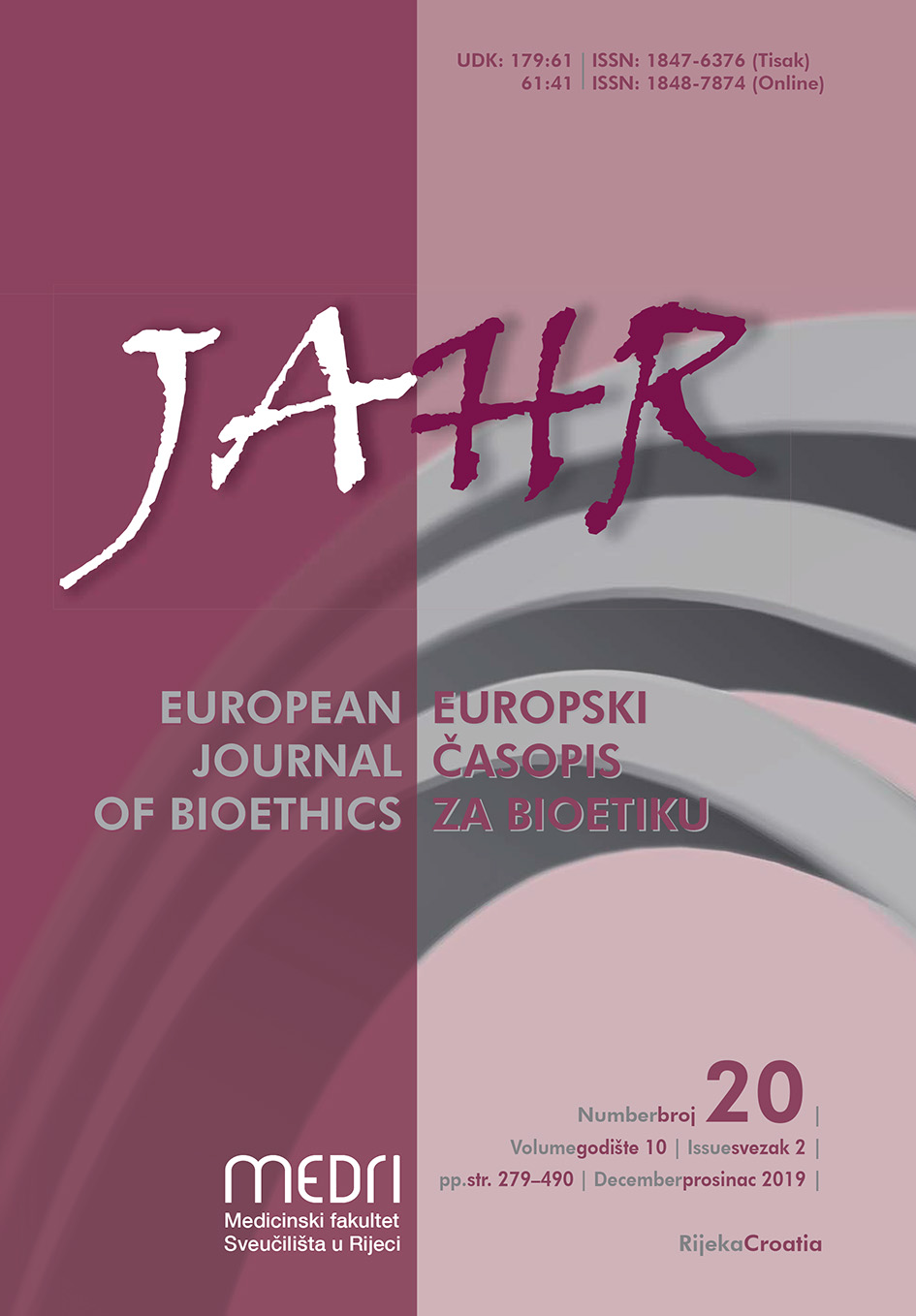Self-realization of Living Beings and GMO in Agriculture
Keywords:
self-realization, GMO, agriculture, conflict of grounds of obligationAbstract
https://doi.org/10.21860/j.10.2.5
In this paper, I will suggest an ethical framework for reflecting on the moral consideration towards human and non-human living beings, which is based on the notion of selfrealization. Such an ethical position, which sees morally right action as the one seeking to enable self-realization to each living being, tries to establish a biocentric consideration not far from the classical ethical categories. Besides, it is suitable for the judgment of contemporary concrete moral problems, a part of which certainly is the question of the justification of genetic modification of organisms in agriculture. Apart from the morally suspicious human intervention in the intimate structure of living beings, which unnecessarily jeopardizes their self-realization, from the aspect of human self realization, the whole scientific, technological, and economic framework to which such activities belong is questionable. Precisely by focusing on this framework, we are getting closer to what is here considered as a pre-task of morals, namely, the avoidance of conflict of grounds of obligation toward self realization of different living beings, by which the potentials of the utopian in (bio)ethical thinking are reviled. Thus instead of the classic pro et contra approach to the issue of GMOs in agriculture, we are addressing here the often unexamined conditions in which genetic modifications in this field take place.
Downloads
Published
Issue
Section
License
Authors who publish with this journal agree to the following terms:
- Authors retain copyright and grant the journal right of first publication with the work simultaneously licensed under a Creative Commons Attribution License that allows others to share the work with an acknowledgement of the work's authorship and initial publication in this journal.
- Authors are able to enter into separate, additional contractual arrangements for the non-exclusive distribution of the journal's published version of the work (e.g., post it to an institutional repository or publish it in a book), with an acknowledgement of its initial publication in this journal.
- Authors are permitted and encouraged to post their work online (e.g., in institutional repositories or on their website) prior to and during the submission process, as it can lead to productive exchanges, as well as earlier and greater citation of published work (See The Effect of Open Access).



